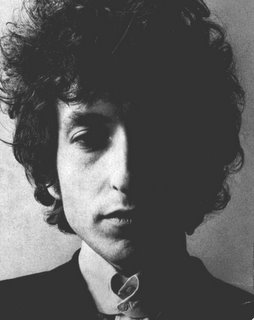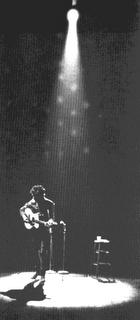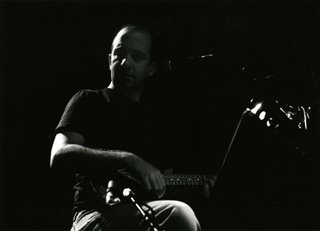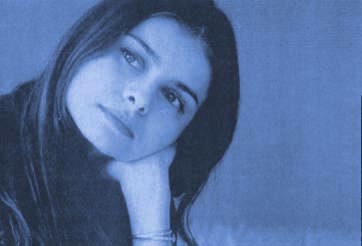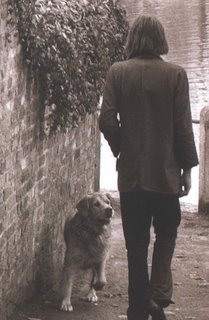
His is one of those voices that come back with that same force with which the cold wind hits you on the face when you are there, standing in front of the Northern Sea. There is no sand on those beaches: it's all stones and crab fossils and promenades, the light of the abandoned carroussels illuminating the still, quiet low water reaching your feet. His is a voice and a sound that has not ever been repeated.
His is the voice of the dead young man who could have been so many great things had he lived a little bit longer. But don't let me be misunderstood: he
did great things, amazing songs, full of sentiment and aesthetic clarity. Nick Drake is one of those musicians/singers/composers that I cannot live without: his songs, like this one, speak to me with an honesty that makes me shiver everytime. In my imagination,
One of These Things First is a brilliant testament, a message inside a sacrificed empty crystal bottle, thrown into the cold waters of the English coast. It is the wounding testimony of an impossibility: the painful awareness of what never was:
I could have been your pillar, could have been your door
I could have stayed beside you, could have stayed for more.
Could have been your statue, could have been your friend,
A whole long lifetime could have been the end.
I could be yours so true
I would be, I should be through and through
I could have been
One of these things first
These lines speak to me in such an intimate manner I can't barely express how the piano-and-guitar music, an almost autonomous, live entity in this song, becomes some sort of faded, yet still pristine-white wallpaper for the lyrics. The song speaks of the possibility of what was impossible: there is nothing more idle that imagining what could have been but is not; as idle and useless as the custom of composing songs of love and heartache on the table of your local pub, a cheap pint of lager casting a long shadow on two crumpled pieces of paper, maybe disposable napkins, maybe an old newspaper someone used to wrap greasy chips sprinkled with old vinegar.
Nick Drake could have been many things. He was many of them. A pillar, a door, a whistle, a real live lover, a book, a signpost, a statue, a kettle, steady as a rock. This is the musical translation of the profound sigh after realizing all that never was and maybe never will be.
His voice and his fingers speak to me from beyond. He forever walked away, and yet, he is still here, letting us know, reminding us. I could be. I would be. I should be. One of these things first.


